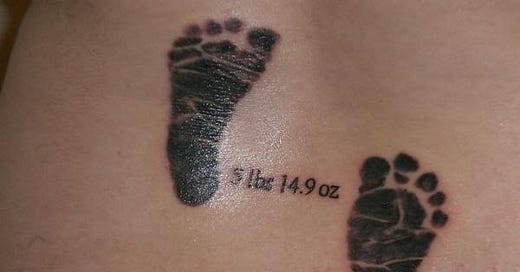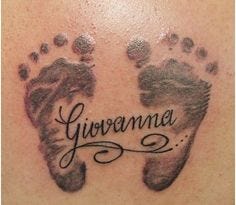MADE FOR YOU AND ME 2: hive Being (Stanzas 2017—part 36)
Let's workshop this stanza sequence about hookers, voices, hitchhikers, what remains after cremation, runners, keeping a dead body at home, off-putting tramp stamps, JonBenét Ramsey, art forgeries
merely brought out of hiding, not into being, by being named hitchhiking hookers is there another voice inside you? seeking out broken-down cars to hitchhike next to trying to fall asleep on concrete his faith doubted him intellectual humility is crucial for wishful-meaning projectors like ourselves: personality diagnoses floor us with their accuracy— yes, even when randomly generated from some sham internet quiz when you should be a patient at the place where you work telling each other “You ain’t shit; you ain’t leavin’ no skid row” living in the woods at the end of your old street titanium in the cremains knowing to stay away from your wife, who just lost the baby, so that she may read your distance as grief drugs for those who lack the prospect of vacations to ease the pain of the workday migratory skid rows overfeeding kids with junk, to be the source of their satisfaction “bitch looked like JonBenét Ramsey if she didn't get killed, but I kept fuckin!” gathered around the TV with the family, you guzzle the beer in that liminal space before the news sinks into the room (making any more sips inappropriate) abuse leaving you muddled as to your sexuality embalming practice upon the homeless dead dry ice to keep the body longer at home six-digit prices for acknowledged forgeries guessing the gun hushed for signs of life in the rubble your generation’s turn to die protected by the geography itself designs on abuse from the moment of arrival in the home consideration of flood plains when figuring out where to get buried she said “fuck it from the back” (adding “momma really needs it”), knowing damn well there were impressions of her stillborn infant— its little wrinkly feet—tattooed dead in the tramp-stamp region housing crises in the age where the most profound events happen within the home
This is a portion of an ongoing mosaic poem called Made for You and Me. This portion is from the first installment: hive Being (Stanzas 2016-2020). More specifically, it is from the 2017 portion of that five-part work.







"your generation’s turn to die" like the flipping through of a rolodex
A fragmented meditation on the fractured and often dark realities of contemporary existence. Through a series of disjointed and seemingly unrelated images, the poem explores themes of existential despair, social decay, and the pervasive sense of loss that permeates modern life. The title suggests that these grim realities are not new phenomena brought into existence by articulation but rather enduring truths that are revealed or made visible through the act of naming.
The imagery of "hitchhiking hookers" and "seeking out broken-down cars to hitchhike next to" immediately immerses the reader in a world of transient, marginalized existence. These figures symbolize those who live on the fringes of society, perpetually in motion but without a clear direction or destination. The poem's shifting scenes—from "trying to fall asleep on concrete" to "living in the woods at the end of your old street"—reflect a sense of displacement and rootlessness, suggesting a journey not just through physical spaces but through emotional and psychological landscapes as well.
Interspersed with these vivid snapshots are reflections on the human psyche and self-perception. The lines "intellectual humility is crucial for wishful-meaning projectors / like ourselves" and "personality diagnoses floor us with their accuracy— / yes, even when randomly generated from some sham internet quiz" highlight the human tendency to search for meaning in randomness and to find profound truths in superficial or even fraudulent contexts. This underscores a broader commentary on the human condition: the constant struggle for identity, validation, and understanding in a world that often provides more questions than answers.
The poem also touches on themes of grief and trauma, particularly in the lines "knowing to stay away from your wife, / who just lost the baby, so that she may / read your distance as grief." This moment captures the complex interplay of personal pain, emotional distance, and the ways in which individuals navigate and express their suffering. Similarly, the mention of "abuse leaving you muddled as to your sexuality" speaks to the long-lasting impacts of trauma on one's identity and sense of self.
Economic and social critiques are woven throughout the poem, evident in references to "overfeeding kids with junk, to be the source of their satisfaction" and "six-digit prices for acknowledged forgeries." These lines reflect a critique of consumerism, inequality, and the commodification of both physical and emotional sustenance. The notion of "migratory skid rows" and "housing crises in the age / where the most profound events / happen within the home" further emphasizes the instability and precariousness of contemporary life, where even the concept of home is fraught with tension and uncertainty.
Ultimately, the poem offers a bleak yet poignant reflection on the myriad ways individuals cope with existential dread, societal collapse, and personal grief. The varied, sometimes jarring images combine to create a mosaic of contemporary suffering, suggesting that these struggles are interconnected and pervasive, merely "brought out of hiding" through the poem's evocative language and stark imagery.
existential despair, social decay, marginalization, trauma, grief, consumerism critique, identity struggle, commodification, contemporary suffering, displacement, psychological landscapes, social instability, rootlessness, modern existence.